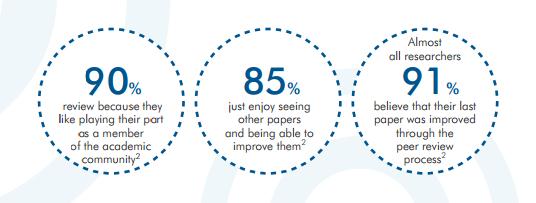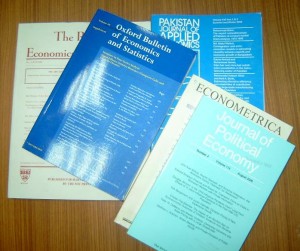This is a follow-up to a previous post from September 2013 entitled ‘Soliciting peer reviews from PhD students’. In that piece, I summarised the responses I’d received from a number of editors of peer-reviewed journals in the field of Quaternary Science having asked them their feelings on soliciting peer reviews from PhD students. Some recent events, most significant being the acceptance of my first paper and being invited to review a manuscript a manuscript for the first time, have encouraged me to outline my personal experiences.
Reviewing my first paper
Late last year an email out of the blue from an Editor of a peer-reviewed EGU Open Access journal arrived in my inbox inviting me to review a manuscript. I initially presumed the Editor in question had read my recently-published blog post and was following up my expression of interest, but the timing didn’t work; I received the email before the post went live. I’ll elaborate on my experience of the reviewing processes in a moment, but after I had returned my review, the Editor kindly gave me some feedback on my review and told me how I’d come to their attention: it turned out a colleague had seen a talk I gave at a recent conference, the Editor examined my online profile and judged my knowledge base to be appropriate. This certainly confirms that aiming to give oral presentations from an early stage in your PhD can lead to unexpected rewards!
The Open Access profile of EGU journals means the full manuscript is available as a Discussion version; I spent considerable time scanning the manuscript while deliberating about whether to accept. I have no qualms in admitting I was nervous! By accepting the invitation to act as a reviewer, I was, in essence, responsible for deciding whether the rigour and relevance of the work was sufficient for it to permanently enter the realm of published research. This quote from Dr Stephen Keevil (KCL) in the ‘Peer Review: The nuts and bolts’ report on the role of a reviewer was definitely on my mind:
“…to act as a gatekeeper for quality in an area of science that I know and care about”
In the end, I decided to undertake the review because I felt comfortable that my background knowledge was sufficient to assess where the work fit in the current state of science and whether the investigation carried out met the stated aims and also that sufficient more specialist expertise I’d gained during my PhD would enable me to comment on the rigour and methodology of the research.
I was most anxious about my lack of detailed knowledge pertaining to the environment from which the samples were collected. I have a general idea of the local topography and landscape but I know very little about the geology, climate and landscape history of the area in question. These characteristics can have enormous effects on the sedimentary record and I felt this was not fully addressed in the paper; thus, several questions I posed in my review sought clarification on this aspect. However, this was not the principle aim and other researchers with experience working in the same region would not require such detail to be included in a paper and I remain unsure whether it was appropriate to focus on these aspects so much.
It was interesting to read the response from the authors explaining how they had addressed the comments from both reviewers. Looking at the final published version, my view is that the majority of my suggestions to the authors were explicitly addressed but a couple of my more substantial queries (related to geomorphic setting) were deemed not sufficiently important as to alter their findings. The Editor clearly felt their revisions were sufficient and what I believe to be an interesting and high-quality manuscript is now published.
Submitting my first paper
The acceptance of my first peer-reviewed manuscript a couple of weeks ago was wonderful, although I imagine the feeling of seeing it published online with paginated formatting and a DOI number will be even more gratifying! The process has been a tremendous experience and I cannot emphasise enough to other PhD students the value of going through the peer-review system at an early stage (obviously substantive results are necessary!). Obviously it looks impressive on your CV but the reviewers raised questions that I had never before considered (and neither had my Supervisors!); I have no doubt my overall PhD, not just this paper, will be substantially improved by this experience.

Diagram from the ‘Peer Review: The Nuts and Bolts’ 2009 report from the Voice of Young Science network.
The three reviews were largely positive and some of the comments were quite pleasing. The reviews were very different in terms of their length, detail and principal concerns but all three raised very good points that I needed to address. One section ultimately was removed from the original manuscript; While deleting hundreds of words was disappointing, it also made me realise I had been rather narrow-minded and too focused on one particular area of my own research and had missed some of the wider implications. I think this is easy to do when undertaking a PhD but is definitely a useful lesson. One reviewer examined the manuscript in extraordinary detail and offered numerous constructive comments and I am extremely grateful for their efforts. While I recognise the time commitment required, I do hope my future submissions receive a similar degree of attention from reviewers and it has certainly inspired me to ensure if and when I am invited to review again, I invest equivalent time and effort.
Most importantly, the revised manuscript is without doubt much better than my original submission. The Nuts and Bolts report indicated 91% of researchers felt their last paper was improved after peer-review and I certainly include myself in that section. Please do get in touch on Twitter or the Comments section if anyone has any questions about my experiences.

